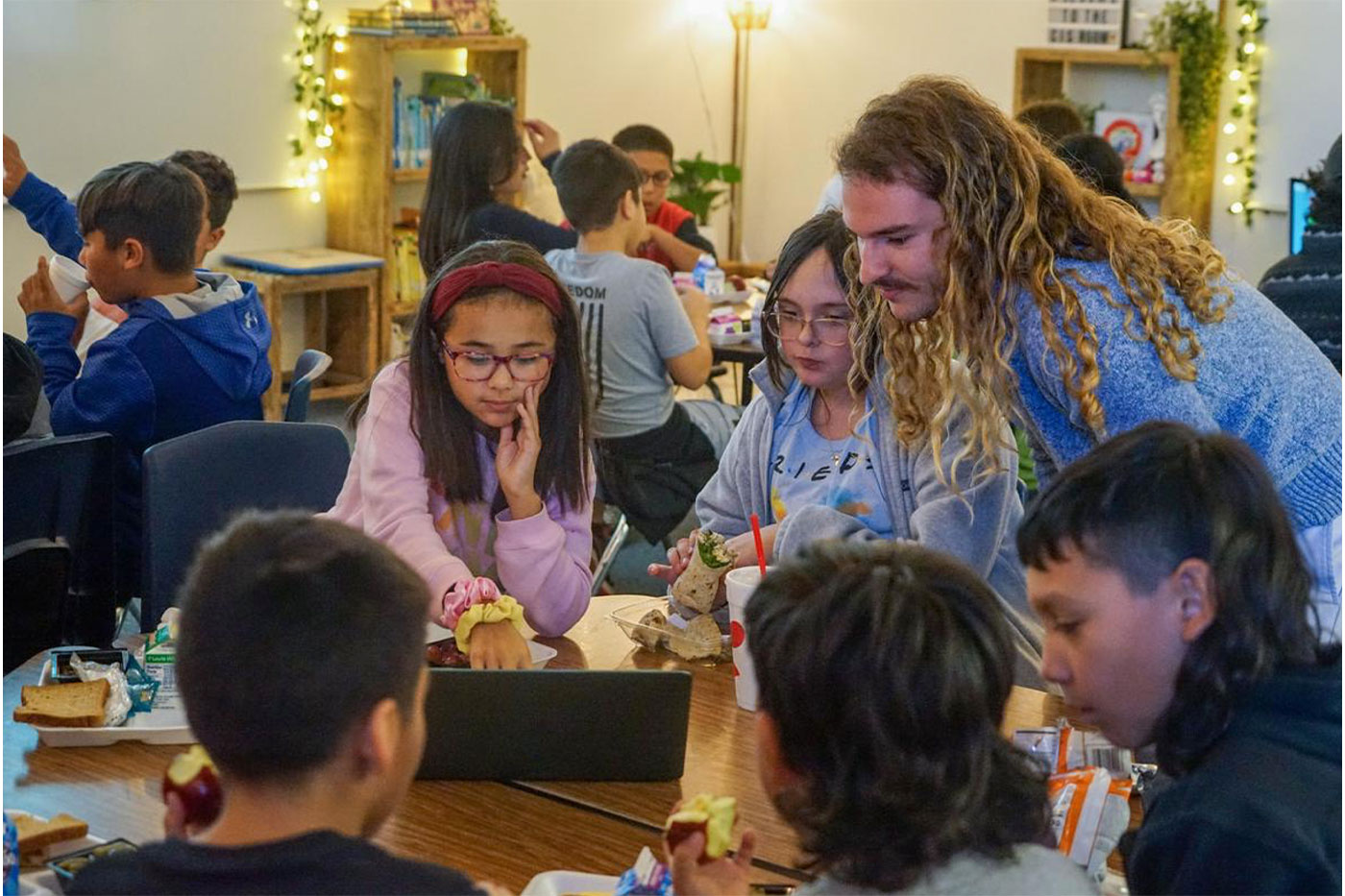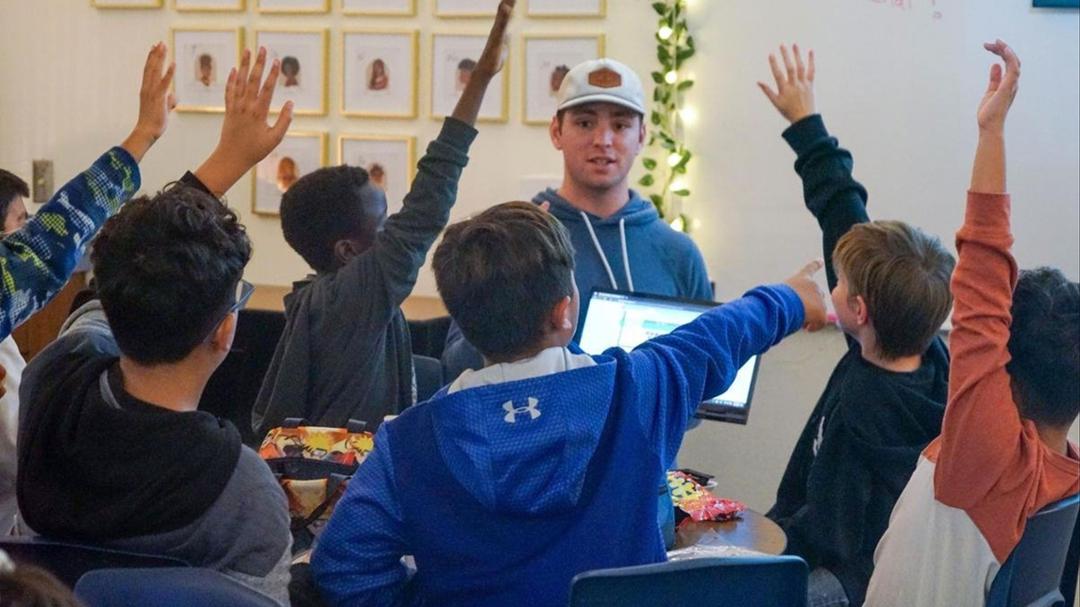The Honors Enhanced initiative has allowed more students to enrich their learning experience and fill their requirements to graduate with honors.
Enrolling in the Honors College at Texas Tech University certainly comes with perks, but until spring 2023, some students found it difficult to secure all 24 credits needed to graduate with Honors recognition.
In came Honors Enhanced (HE+), an initiative launched by Dean Jill Hernandez in which the college and non-Honors instructors partner to provide students with exclusive sections including various activities in addition to standard coursework.
From fall 2023 to fall 2024, the Honors College’s total enrollment headcount grew by 19.48%, with the mark from spring 2024 to this spring up 22.53%.
The proliferation of HE+ offerings since the program’s start, now numbering 650, has meant numerous, symbiotic experiences for students and Texas Tech’s surrounding community. The service-learning program led by Spanish lecturer Noah Verboon, which coincides with the Spanish Foundations courses of SPAN 1507, 2301 and 2302, is a strong example of HE+ at its best.
The service-learning program involves seven to eight weeks of one-hour sessions per semester. At Lubbock Independent School District’s McWhorter Elementary, SPAN 1507 students tutor second, third, fourth and fifth graders for the Spanish Spelling Bee, while the SPAN 2301 cohort provides literacy education in English and Spanish for elementary students and adults. SPAN 2302 students lead an extracurricular Spanish club at Westwind Elementary in the Frenship Independent School District.
Beyond the benefit of being able to communicate with more people, Verboon says the process of learning another language is important in that it places people in uncomfortable situations, forcing them to experiment and leave their comfort zone to express what they want.
Since he started leading his HE+ sections in fall 2022, the vast majority of feedback he solicits at the end of each semester is approving. Students enjoy experiencing Spanish outside the typical classroom setting, interacting with their peers and seeing more of the Lubbock community.
“They get to practice the skills of collaboration, patience, being comfortable in an uncomfortable situation and navigating communication breakdowns,” says Verboon. “All of them say in their reflections that it’s a positive experience.”

Tanusha Nath, a third-year biochemistry major, helped adults at McWhorter increase their literacy this spring. Her initial apprehension regarding her ability to speak Spanish quickly eroded as she learned more about her pupils and their backgrounds as well as those of her peers.
By early May, Nath’s feelings turned into jubilation as she watched the adults drastically improve their English. Her empathy is genuine, as she, too, once had to endure the challenge of learning a new language, coming from a Bengali household.
When Nath previously worked at the Lubbock Impact Free Clinic, where many clients were Spanish speakers, she was reminded of times she’s had to assist her parents adjust to an English-dominant world. Providing relief to not only the clinic’s visitors but to her coworkers was a significant motivating factor in Nath’s draw to Spanish.
The adult literacy sessions involved the completion of lesson plans prior to the Honors students’ arrival and freedom when working with the students to have discussions or play games as a method of learning. Past the awkwardness of the first few sessions, Nath noted the adults became more comfortable and less scared to ask for help, leading to a fun environment for all parties.
The HE+ section exposed Nath to something she had never heard of before, even as she’s lived in Lubbock all her life. She chronicled the experience as another benefit the Honors College offers in connecting students to their community.
“I’ve told so many other people who also live here, who don’t know about these programs, how they can help,” Nath says. “With Honors, it just opens a huge door of opportunities, and you can definitely find a place where you feel like you fit.”
Luke Fourroux, a recent graduate who also studied biochemistry, volunteered at McWhorter while taking SPAN 2301. HE+ came into fruition his second year on campus, and was a saving grace as Fourroux didn’t take some of his general credits as Honors courses.
“With the addition of HE+, and the program that Noah Verboon has, that kind of was one of the primary reasons I was able to fully complete all of my honors credits in a pretty timely manner where I didn’t have to go way out of my way, like I would’ve otherwise,” says Fourroux.
He helped kindergarten and first-grade students improve their reading in Spanish as state exams approached, of which he recalls hearing the additional tutoring may have contributed to the students’ high scores.
As someone who has always enjoyed working with children and spent time in the Bayless Elementary Mentoring Program while at Texas Tech, the service-learning program was an easy choice for Fourroux. But the weekly sessions taught him how to be patient and reminded him about the difficulty of learning a language, especially at such a young age.
“When you look at a campus like Texas Tech that is so diverse in so many ways, I think that it made me remember this is a situation that a lot of people find themselves in, no matter what actual age that they're at,” Fourroux says. “Understanding and trying to be more cognizant of that and hearing how we can support those individuals was a huge thing that I came out of that considering. That wasn’t really something I ever thought about before.”
Each Honors student would have a small group of children to work with, in which Fourroux and others watched the children progress in their ability to read passages and engage in basic conversations. Fourroux also applied some of what he learned in SPAN 2301.
By the end of the semester, Fourroux noticed a tangible improvement in one child who struggled to read at the beginning, which solidified to Fourroux that his efforts and others’ were making a difference.
“There’s not a better feeling in the world than that,” he says.
At Westwind Elementary, Ma’at Blackwell has watched Honors students play a significant role in aiding students’ Spanish education since 2023.
A site coordinator for Westwind’s Communities in Schools chapter, Blackwell picked up where the previous coordinator left off in working with Verboon to run the afterschool Spanish club for third through fifth graders.
Verboon explained the concept to her as student mentors coming to do various activities with the children. Blackwell loved this, as her own students appreciate every opportunity to work with a mentor. With Westwind’s status as a Title I elementary with children from low-income families, the extra resources the Spanish club represented was another bonus.
As much as 35 children participated in each weekly session, where the Honors students split into smaller groups and led activities worksheets, games of Jeopardy, and more.
The elementary students enjoyed the more relaxed afterschool setting and interacting with their friends, so much so that many who were part of the club during the fall came back in the spring. This occurred even as Blackwell sought to open some space for students who didn’t get the chance to join in the fall.
“I really hope it comes back next year, because it was such a great opportunity for our kids,” says Blackwell. “They learned a lot, they got to hang out and I appreciated how the Honors students were able to make learning fun.”
Involvement in Verboon’s HE+ sections has grown from roughly 30 students in spring 2023 to over 60 in fall 2024 and over 70 this spring, and Verboon anticipates that figure isn’t done growing.
Whether at McWhorter, Westwind, or through self-guided research projects, Verboon has seen Honors students emerge from the service-learning program with more confidence in not only their ability to speak Spanish but also to teach others.
In some cases, students determine that working with children might not be in their future, but the program encourages that type of reflection all the same.
For Nath, who wants to be an OB-GYN and one day open her own clinic, the HE+ section has enhanced the connection of Spanish to her career.
“Medical terminology, as opposed to English or Spanish in general, is completely different,” says Nath. “Learning the basics of Spanish has been really helpful in terms of building that foundation and now applying it to medical settings.”

